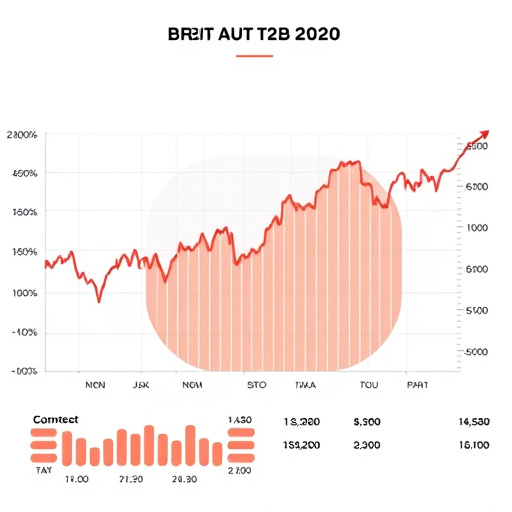The stock exchange is where companies sell ownership stakes to raise capital, with share prices influenced by financial health, industry trends, and global events. To Learn How to Trade Shares effectively, understand different types of shares (common vs preferred) and price movement patterns. In Newcastle, success demands education, practical experience, strategic risk management, diversification, clear goals, and a long-term perspective. Utilize online resources, demo accounts, and careful research to navigate the market and master share trading techniques.
“Uncover the basics of the share market and master the art of trading in Newcastle with this comprehensive guide. From grasping the fundamentals of what the share market is and its inner workings, to exploring diverse investment options, this article equips you with essential knowledge. We’ll break down key concepts like price movements and trends, empowering you to decipher market indicators accurately.
Learn effective trading strategies tailored for Newcastle’s landscape, navigate risks intelligently, and construct a robust investment plan – all in the pursuit of teaching you how to trade shares successfully.”
- What is the Share Market and How Does it Work?
- Understanding Different Types of Shares and Investments
- Key Concepts: Price Movement, Trends, and Market Indicators
- Strategies for Effective Share Trading in Newcastle
- Navigating Risks and Building a Solid Investment Plan
What is the Share Market and How Does it Work?

The share market, also known as the stock exchange, is a platform where shares of publicly traded companies are bought and sold. It serves as a crucial mechanism for businesses to raise capital by offering ownership stakes to investors. For individuals looking to Learn How to Trade Shares, understanding this dynamic marketplace is essential.
When you buy a share, you become a partial owner of the company. The price of these shares fluctuates based on various factors such as the company’s financial health, industry performance, market sentiment, and even global events. Traders can make profits by buying shares at low prices and selling them when their value increases. The process involves placing orders through a brokerage, which acts as an intermediary between buyers and sellers, ensuring smooth transactions.
Understanding Different Types of Shares and Investments

When you’re Learning How to Trade shares, understanding different types is a crucial step. There are two main categories: common shares and preferred shares. Common shares represent ownership in a company, granting shareholders voting rights and the potential for capital appreciation or dividend payments. They’re ideal for investors seeking long-term growth. Preferred shares, on the other hand, offer a fixed dividend and have priority over common shareholders in terms of dividend payments and liquidation proceeds but typically do not carry voting rights.
Each type of share investment has its own risk and reward profile. For instance, common shares can be more volatile but promise higher potential returns, while preferred shares provide steadier income with lower risk. Diversifying your portfolio by holding both types allows for a balanced approach to Learn How to Trade Shares effectively, balancing growth opportunities with stability.
Key Concepts: Price Movement, Trends, and Market Indicators

Understanding price movement is a fundamental aspect of Learning How to Trade shares. Prices fluctuate constantly due to various factors, such as market sentiment, news, and economic indicators. As a trader, recognizing patterns in price movements—whether it’s an upward trend, a downward spiral, or a period of consolidation—is crucial for making informed decisions. By analyzing historical data and using tools like charts and technical indicators, you can predict potential price shifts and adjust your strategies accordingly.
Trends play a significant role in share market dynamics. Identifying long-term trends helps traders align their investments with market direction. Market indicators, such as moving averages, relative strength index (RSI), and Bollinger Bands, serve as valuable tools to confirm trends and potential turning points. These indicators provide insights into price momentum, overbought or oversold conditions, and potential support or resistance levels. By integrating these concepts into your trading strategy, you gain a competitive edge in navigating the share market effectively and learning how to trade shares successfully.
Strategies for Effective Share Trading in Newcastle

In Newcastle, as with any share trading journey, success hinges on understanding market dynamics and implementing robust strategies. The first step in learning how to trade shares effectively is education. Dedicate time to researching different investment approaches, from value investing to momentum trading. Online resources, books, and even local workshops can equip you with the knowledge of various techniques.
Once armed with this information, choose a brokerage platform that suits your needs and start practicing with a demo account. This risk-free environment allows you to test strategies without financial loss. As you gain confidence, open a live account and start small, allowing yourself to learn from real-world experiences. Remember, patience is key; consistent, calculated trades often yield better results than impulsive decisions.
Navigating Risks and Building a Solid Investment Plan

Navigating the share market involves understanding and managing risks, which are inherent in any investment. The first step for aspiring investors is to learn how to trade shares wisely. This means diversifying your portfolio across different sectors and asset classes to spread risk. By doing so, you reduce the impact of any single investment’s poor performance on your overall wealth. It’s crucial to set clear financial goals that align with your risk tolerance and time horizon; this will guide your investment strategy.
Building a solid investment plan involves thorough research and careful consideration. Stay informed about market trends, economic indicators, and individual company news that can affect share prices. Regularly review and rebalance your portfolio to ensure it remains aligned with your goals. Remember, while the potential rewards of successful share trading are significant, it’s important to approach the market with a long-term perspective and a well-defined strategy.
Understanding how to trade shares effectively begins with grasping the fundamentals of the share market. By delving into key concepts like price movement, trends, and market indicators, you can make informed decisions as a Newcastle trader. Mastering different types of shares and investments, along with navigating risks thoughtfully, will empower you on your journey to learn how to trade successfully. With a solid investment plan in place, you’ll be well-equipped to explore the opportunities that the bustling Newcastle financial landscape offers.



